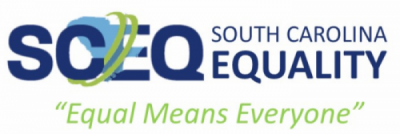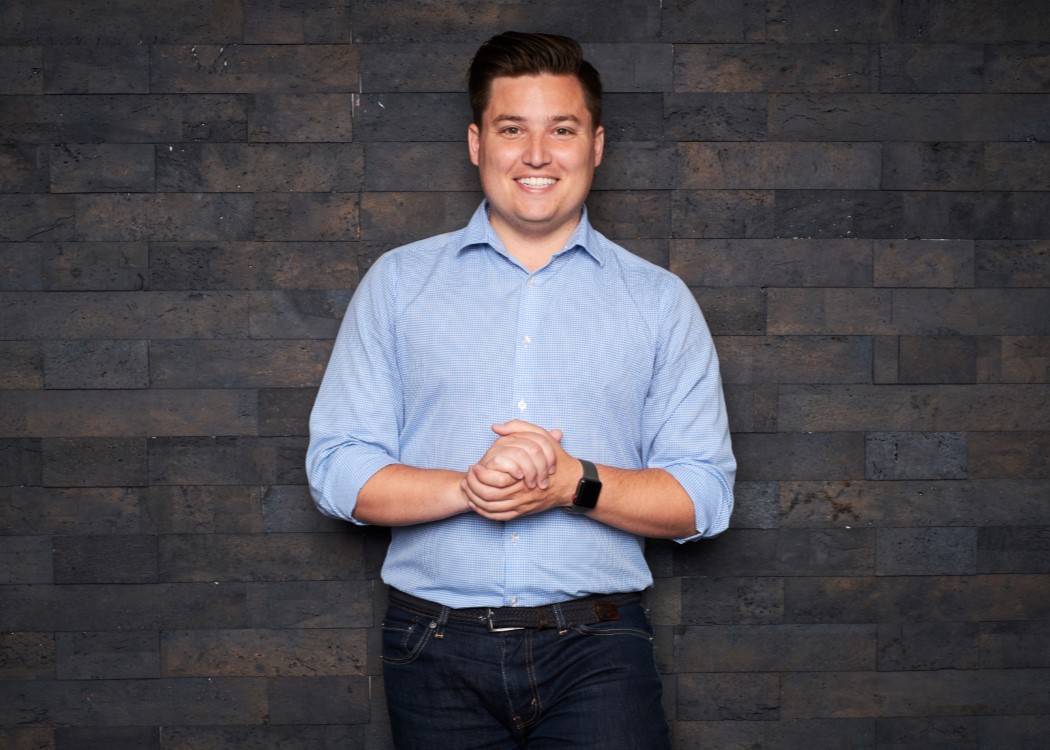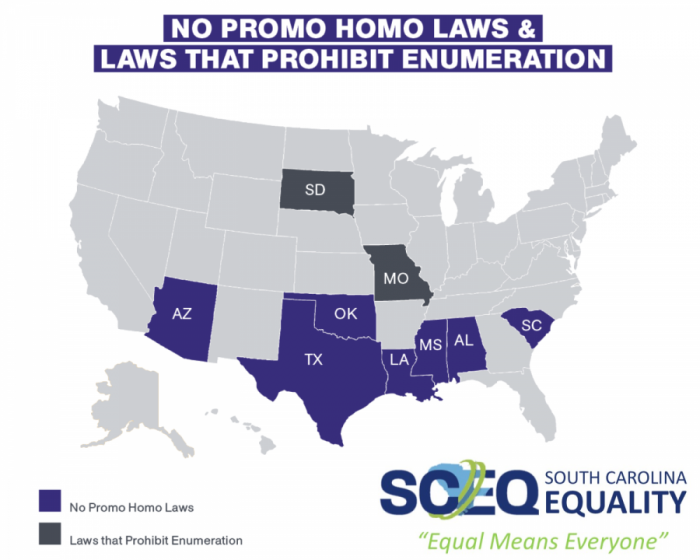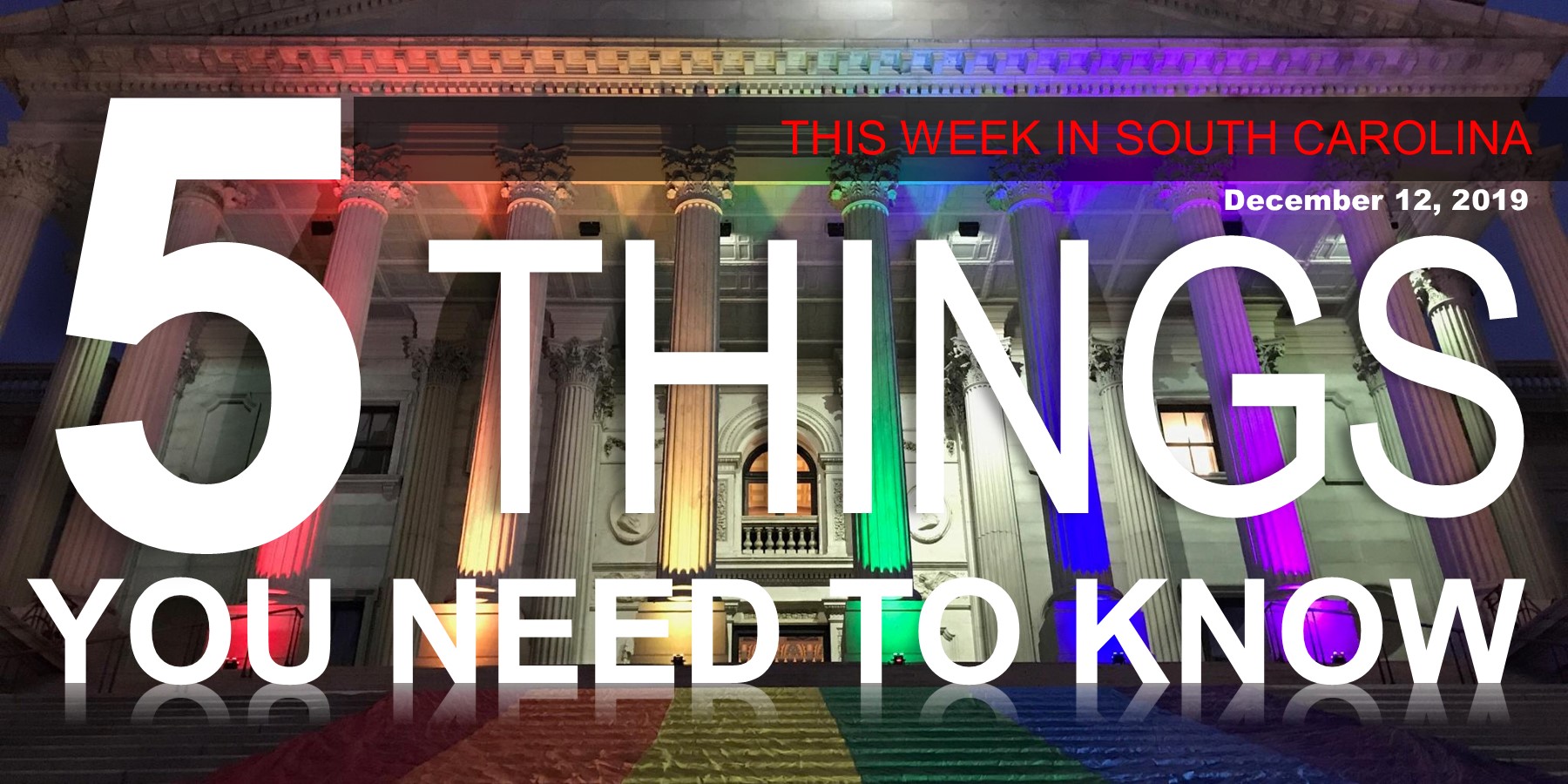Local Ordinances
ACROSS SOUTH CAROLINA
Local governments, private employers, and public universities in South Carolina have made efforts to protect LGBT people from discrimination and harassment, but coverage is incomplete. Eight localities in South Carolina have adopted local ordinances that prohibit discrimination based on sexual orientation and gender identity in areas such as private and public sector employment, housing, and public accommodations.
There is no legal prohibition of discrimination on the basis of sexual orientation and gender identity for both public and private employees on a statewide level.
Sign Up. Receive Email Updates!
Get notified about important news, action alerts and upcoming events.
Donate to SC Equality TODAY!
Make your contribution today and join a grassroots force of supporters standing together for lesbian, gay, bisexual, transgender and queer equality.
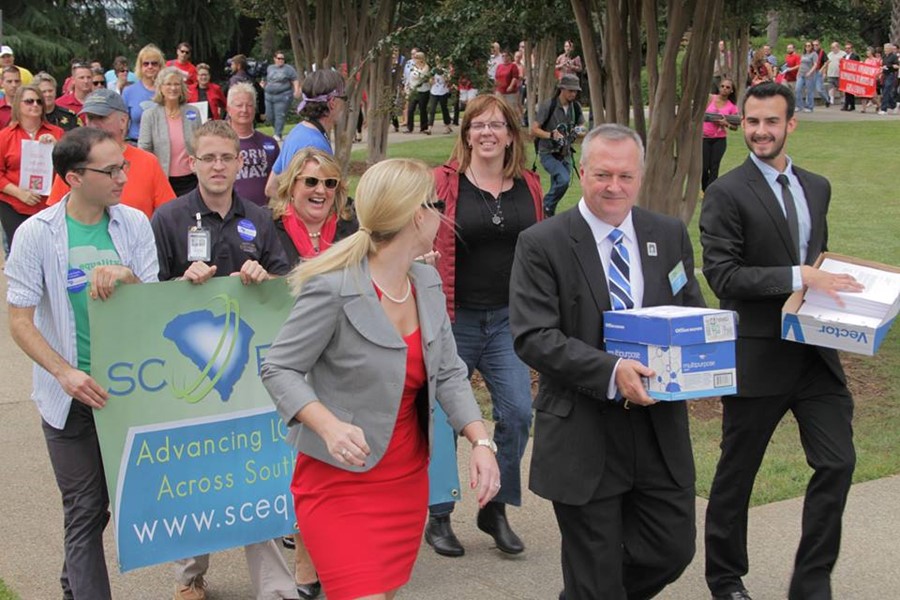
Discrimination against LGBT people in South Carolina has been documented in surveys, court cases, administrative complaints, and the media.
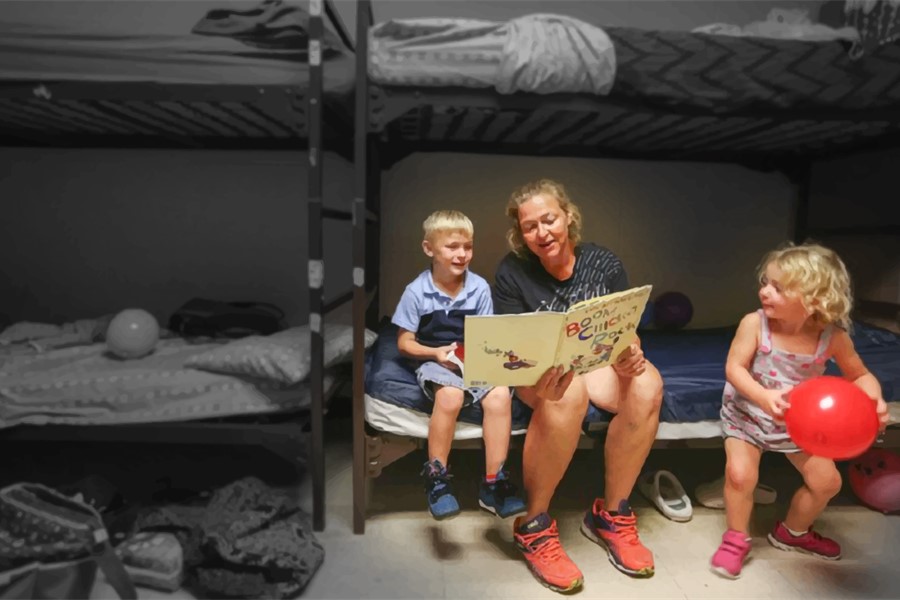
Many LGBT people in South Carolina experience economic instability.
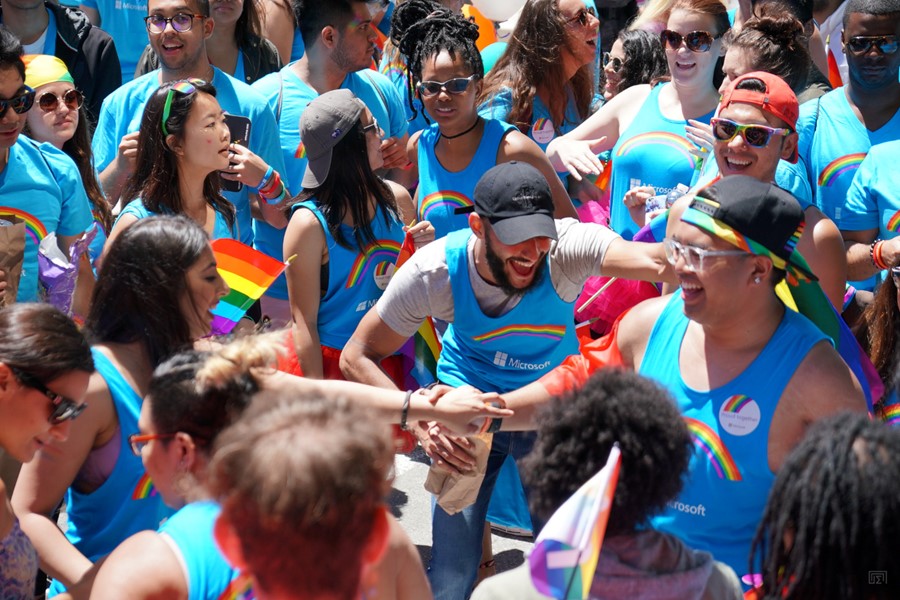
Public opinion in South Carolina supports the passage of non-discrimination protections for LGBT people.
137,000
LGBTQ adults live in South Carolina
99,000
LGBTQ people age 16+ are in South Carolina’s workforce
81%
of South Carolina residents think that LGBTQ people experience discrimination in the state
Breakdown of who is protected and where in South Carolina
Local governments, private employers, and public universities in South Carolina have made efforts to protect LGBT people from discrimination and harassment, but coverage is incomplete.
- Eight localities in South Carolina have adopted local ordinances that prohibit discrimination based on sexual orientation and gender identity in areas such as private and public sector employment, housing, and public accommodations. These localities are: Richland County, Charleston, Columbia, Folly Beach, Latta, Mt. Pleasant, Myrtle Beach, and North Charleston.
- These local ordinances protect approximately 1% of South Carolina’s workforce from employment discrimination based on sexual orientation and gender identity. Local ordinances also protect approximately 8% of adults from discrimination in housing and 12% of adults from discrimination in public accommodations based on sexual orientation and gender identity.
- Many of South Carolina’s largest corporate employers, including BlueCross BlueShield of South Carolina, Wells Fargo, Spartanburg Regional Healthcare, and SCANA Corporation, have policies prohibiting discrimination based on sexual orientation and gender identity. In addition, several large public universities in South Carolina, including the University of South Carolina, Clemson, The Citadel, and Winthrop University, have adopted policies that prohibit discrimination based on sexual orientation and/or gender identity in employment and/or education.
- Despite these policies, many LGBT South Carolina residents are not protected from discrimination based on sexual orientation or gender identity absent a statewide non-discrimination law that includes these characteristics.
12%
of South Carolina adults are protected from public accommodations discrimination based on of sexual orientation and gender identity
8%
are protected in housing
LGBT people in South Carolina report experiencing discrimination and harassment in employment, housing, public accommodations, and other settings.
- An estimated 137,000 LGBT adults live in South Carolina. There are approximately 99,000 LGBT people aged 16 and older in South Carolina’s workforce.
- Survey data indicate that LGBT people experience discrimination in South Carolina. For example, the 2015 U.S. Transgender Survey found that 37% of transgender respondents from South Carolina who held or applied for a job in the prior year reported that they had been fired, denied a promotion, or not hired because of their gender identity or expression.2 In addition, 26% of transgender survey respondents from South Carolina reported experiencing some form of housing discrimination, such as being evicted or denied housing, in the prior year because of their gender identity or expression.3 And, 36% of respondents who visited a place of public accommodation where employees knew or thought they were transgender reported experiencing some form of mistreatment, including denial of equal treatment or service, verbal harassment, or physical assault in the prior year.
- In addition, aggregated data from two large public opinion polls conducted between 2011 and 2013 indicated that 81% of South Carolina residents thought that LGBT people experienced discrimination in the state.5 Another public opinion poll conducted in 2016 found that 52% of South Carolina residents thought that gay and lesbian people experienced a lot of discrimination in the U.S. and 58% of South Carolina residents thought that transgender people experienced a lot of discrimination in the U.S.
- National survey data on discrimination against LGBT people are consistent with data from South Carolina. For example, a national survey of LGBT people conducted by Pew Research Center in 2013 found that 21% of respondents said that they had been treated unfairly by an employer in hiring, pay, or promotions and 23% had received poor service at a restaurant, hotel, or other place of business because of their sexual orientation or gender identity.
- Reports of discrimination based on sexual orientation and gender identity in South Carolina have also been documented in testimony before the state legislature and city councils, through administrative complaints, lawsuits, and in the media.
Research indicates that LGBT people in South Carolina experience economic instability.
- Data collected through the Gallup Daily Tracking Poll indicate that LGBT people in South Carolina experience poor socioeconomic outcomes:
- 28% of LGBT adults in South Carolina reported having a household income below $24,000 compared to 23% of non-LGBT adults.
- 23% of LGBT adults in South Carolina reported that they do not have health insurance compared to 13% of non-LGBT adults.
- 36% of LGBT adults in South Carolina reported not having enough money for food compared to 18% of non-LGBT adults.
- 11% of LGBT adults in South Carolina reported being unemployed compared to 5% of non-LGBT adults.
- Research has linked socioeconomic disparities for LGBT people to geographic region, lack of legal protections from discrimination, and a poor social climate.
Public opinion in South Carolina supports the passage of non-discrimination protections for LGBT people.
- In response to a 2018 poll, 58% of those polled in South Carolina said they favor laws protecting LGBT people from discrimination in employment, housing, and public accommodations.
- In response to a national poll conducted in 2011, 73% of those polled in South Carolina said that Congress should pass a federal law to prohibit employment discrimination based on sexual orientation and gender identity.
- Adding sexual orientation and gender identity to South Carolina’s non-discrimination laws would result in an estimated 55 additional complaints, on average, being filed with the South Carolina Human Affairs Commission each year.
- The additional complaints could likely be absorbed into the existing enforcement system with no need for additional staff and negligible costs.
Latest News
Welcome Jarrod Wiggins to SC Equality Board
admin2020-01-23T11:08:08-05:00January 22nd, 2020|
SC Equality Board Welcomes Jarrod Wiggins We are pleased to welcome Jarrod Wiggins to the SC Equality Board. His dedication and knowledge of the issues faced by the LGBTQ community will further add strength to our Board and help us continue to make a difference in LGBTQ South Carolinian's lives. Jarrod Wiggins Greenville, S.C. (He/Him/His) Jarrod Wiggins oversees New Business & Strategy at SLANT, a full-service marketing and creative agency [...]
Your guide for bills to track this legislative session in S.C.
admin2020-02-26T12:35:21-05:00January 14th, 2020|
2020 South Carolina legislative session starts today 2020 Legislative Tracker The 2020 South Carolina legislative session starts today and SC Equality is committed to advocating for bills that will bring us closer to fully protecting LGBTQ South Carolinians. We are also prepared to fight against any anti-LGBTQ bill that moves this session. Our team is at the Statehouse today and will be [...]
SC Equality to bring a legal challenge to South Carolina’s “No Promo Homo” law
admin2020-01-22T10:08:22-05:00December 16th, 2019|
SC Equality Board, with the support of its Litigation Task Force, has authorized SC Equality to bring a legal challenge to South Carolina's "No Promo Homo" law which prohibits public school health teachers from discussing homosexuality or homosexual persons in South Carolina classrooms. This law forces teachers to provide inaccurate and incomplete information to students and serves to further stigmatize LGBTQ students and children with LGBTQ parents. Some of you may [...]
5 THINGS YOU NEED TO KNOW THIS WEEK (December 12, 2019)
admin2019-12-12T15:09:27-05:00December 12th, 2019|
South Carolina wants to ban lifesaving medical treatments for trans kids. It’s part of a bigger push around the country. Trans children have been in the national spotlight in recent weeks, with the governor of Texas stepping in to try to stop a mother from allowing her child to transition. And last Wednesday, South Carolina legislators joined in with a bill that would ban a variety [...]
